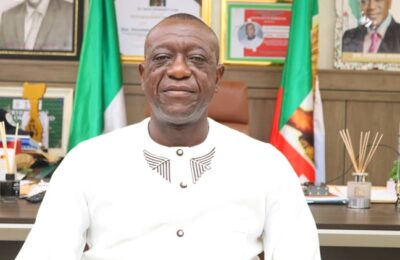In the unfolding drama of governance across Africa, one reality stands unchallenged: politicians are shaping prosperity without regard for posterity. Power, once a sacred trust, has become a transaction. Leadership, once a moral compass, now drifts toward self-gratification. Nigeria, like many nations of the global South, stands at the epicenter of this paradox — where the pursuit of personal gain eclipses the promise of collective growth.
The grand illusion of prosperity has blinded many in authority. Government houses overflow with opulence while the common man struggles for daily bread. From the oil fields of the Niger Delta to the dry plains of the North, citizens watch as their leaders legislate wealth for themselves and legislate endurance for others. The gulf between public duty and private luxury widens with every election cycle, eroding the moral foundation of governance.
Political theorists often argue that prosperity without posterity is nothing more than organized waste. It is a system that rewards the present elite while mortgaging the unborn. Across Africa’s political landscape, a disturbing pattern persists: leaders who speak of national progress yet govern as proprietors of personal empires. This culture of entitlement has turned politics into an industry, where loyalty outweighs competence, and contracts replace conscience.
John Adams’ immortal words ring truer today than ever: “Posterity! You will never know how much it cost the present generation to preserve your freedom.” Sadly, in nations like Nigeria, that sacrifice has been replaced by greed, and freedom by fear. Those who should build institutions are busy building monuments to themselves. Those meant to defend democracy now exploit its weaknesses for political survival.
A nation cannot prosper when its leaders live above its pain. Prosperity must be rooted in shared progress — in education, job creation, justice, and security. True governance thrives not on campaign rhetoric but on moral evidence. Leaders must understand that power is a privilege of trust, not an inheritance of greed. When prosperity becomes inclusive, posterity will celebrate; when it is exclusive, posterity will condemn.
Nigeria’s current political moment is a test of conscience. The country must decide whether to continue rewarding corruption or to return to the ethics of service. A new political philosophy is needed — one that values legacy over luxury, sacrifice over showmanship, and posterity over possession.
History is a silent witness that never forgets. When the applause fades and the titles vanish, what will remain is not how powerful a politician once was, but how purposeful he chose to be. For in the final judgment of nations, it is not prosperity that defines greatness — it is the wisdom to build for posterity.
– Inah Boniface Ocholi writes from Ayah – Igalamela/Odolu LGA, Kogi state.
08152094428 (SMS Only)




